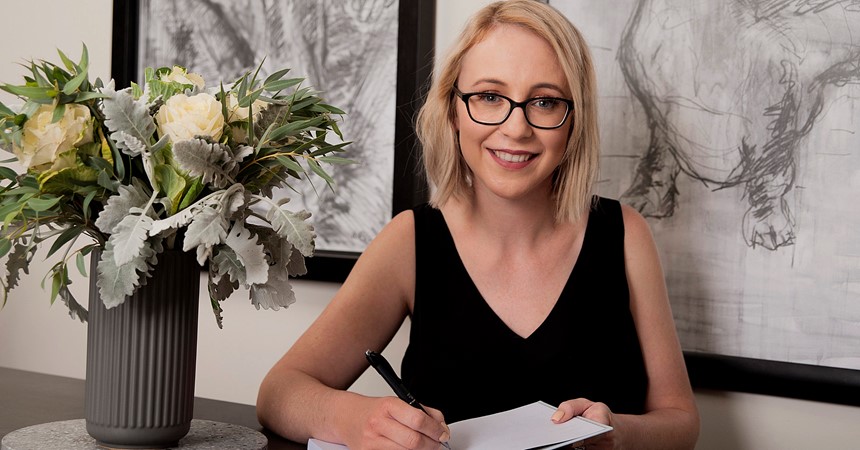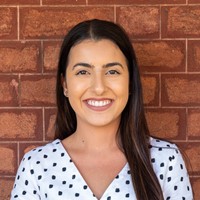Adele's work has seen her financial advice for Gen X and Y featured in a range of publications, including The Australian Financial Review and The Sydney Morning Herald. She has also appeared as a guest on popular television programs including Sky News and The Project.
Adele's efforts have also seen her win national awards, including the Independent Financial Adviser Excellence Award & Best Client Servicing Adviser. However, her chosen career path is about more than just finance; it's about empowering others.
What Catholic school(s) did you attend?
St Francis Xavier's Infants & Primary School, Singleton
St Catherine's Catholic College, Singleton.
Why did your parents choose a Catholic education for you?
My Dad is Catholic, and we were christened Catholic. Both my parents resonated with the values the Catholic schools represented.
What is your fondest memory from your schooling years?
There are so many. I loved school. I know that makes me a big nerd! It was there that I made lifelong friends.
We also had dedicated teachers who would go above and beyond. I remember one teacher would come in on a Saturday to give extra tutoring and support.
I also loved the end of school activities. The last week of school we would go camping or to the beach. We were allowed to jump off waterfalls and just be kids.
You are a multi-award winning Certified Financial Planner and
the founder of The Savings Squad Podcast and My Money Buddy. Did you always aspire to advise people on their finances?
No, and I think my maths teachers would probably find it funny that i do. I wanted to be a journalist like Jana Wendt.
But then I thought I would be "sensible" and do accounting. I finished an accounting degree at the University of Newcastle, but I knew I never wanted to be an accountant. That's when I got a job as an assistant to a financial adviser, so I had some office experience. My time there allowed me to see what financial planning was all about; I loved that it wasn't just money – that it also included a people-focused element. It also wasn't so much maths as understanding legal concepts and applying strategies and then communicating this to clients in a way they understood.
You donate a percentage of your business' profits to the University of Newcastle's Shaping Futures Hardship Fund, which supports the purchase of laptops for students in need. How did you get involved?
I put a percentage of my business' income into a bank account that I use to support charities and do random acts of kindness for people. For example, placing a $100 EFTPOS card into a random letterbox or paying forward for someone's fuel.
As a first-year university student from a regional area, I was lucky enough to receive a Country Women's Association scholarship, which helped cover the cost of my books. I wanted to provide this type of support to other students studying at the University of Newcastle. Everything is online now, and if you don't have a great laptop, you can be left behind.
You are particularly passionate about providing financial advice to people in their 20s, 30s and 40s, and one of your messages for them is the importance of investing in themselves. Why do you think self-investment is so important?
I used to work with retirees, and I would see them living for retirement. But when they got to retirement, they either wouldn't have the money or health to do all the things they wanted to do and had been putting off until retirement. So I would hear from them all the time, "I wish we saw you sooner."
With this knowledge, I started my own business helping younger clients. I wanted to help them master their money to do more of what they love now without waiting for retirement.
What are your top financial planning tips?
1. Watch your thoughts about money
Watch your thoughts and language about money because these effect the results you get. I know this sounds a little 'woo woo' but it's been proven that your thoughts effect how you feel, which effects the action you take and hence the results you get.
Instead of thinking "I can't afford it," replace it with "how can I afford it?" – the word how will have your brain searching for solutions.
2. Create a spending plan
I hate the word 'budget' as it feels like a diet. Nobody wants to be on a diet. Instead, I replace it with the term 'spending plan.' A spending plan is not about never spending money; it's about being intentional and conscious with your money to make sure it goes to where is important.
3. Start investing as soon as possible
Albert Einstein said compound interest is the most powerful force in the universe. Compound interest is where your money earns money, and then that money gets invested and makes money. But it doesn't have to be an all or nothing approach; you can start small, like $20 per week.
4. Don't ignore your superannuation
It's likely to be one of your most significant assets, but so often, we leave it to our employer. We wouldn't let our employer buy a house for us without us at least looking at it. But yet, many do that with our super.
5. Educate yourself
You likely spend 40 plus hours a week working to earn money but don't spend any time learning about it.
There are some outstanding books and free resources, including:
• My podcast and Facebook group "The Savings Squad". We run investment challenges and have savings tips ... like a script to help you negotiate your bills
• The Millionaire Next Door & The Richest Man in Babylon are two of my favourite reads.























































































